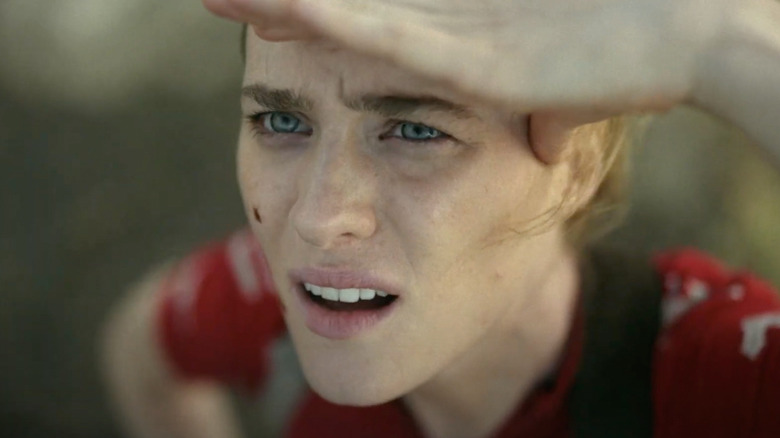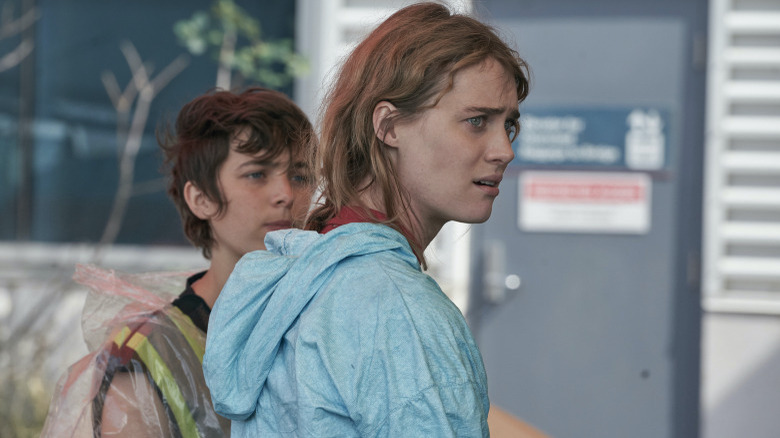Terminator Nearly Made Mackenzie Davis Turn Down Her Offer For Station Eleven
Where do you go after the unthinkable has happened? It's a question people in the real world have been trying to answer as they've navigated the pandemic for the past two years. It also speaks to the heart of "Station Eleven," an affecting HBO miniseries based on Emily St. John Mandel's 2014 post-apocalyptic novel of the same name.
In a plot that hits more than a little close to home after 2020, "Station Eleven" centers on a deadly flu pandemic that wipes out much of the world's population, bringing society to its knees. However, where a franchise like "The Terminator" tends to focus more on the battle to cancel the apocalypse (yes, I know, I'm mixing my movie references), "Station Eleven" is much more concerned with what comes after, when those who survived have to figure out how to start living again in this strange new world.
Among the characters at the heart of "Station Eleven" is Kirsten, who's only a young girl when the world "ends." 20 years later, Kirsten has become a member of the Traveling Symphony, a group of traveling artists who perform famous plays from the past (most notably the works of William Shakespeare) as a way of bringing art and culture to the pockets of civilization that have sprung up over the last two decades.
As an adult, Kirsten is played by Mackenzie Davis, herself no stranger to stories about the end of the world after starring in 2019's "Terminator: Dark Fate." In fact, it was the surface-level parallels to that film that initially made her wary of boarding "Station Eleven" after reading the show's (by the sound of it) somewhat misleading logline.
'The end isn't the end'
"Dark Fate," for those unaware, casts Davis as Grace, a cyborg soldier from the year 2042 who travels back to 2020 to protect Dani (Natalia Reyes), a young woman who will play a pivotal role in the future war between humanity and the machines. I might argue it's easily the best of the "Terminator" films made since "Terminator 2: Judgement Day," if only for the way it updates the property with relevant political overtones and timely transhumanist concepts. But at the same time, it's not even remotely similar to "Station Eleven" in terms of the themes or ideas it explores.
Speaking to W Magazine, Davis explained that the "Station Eleven" logline "just felt similar" to that of "Dark Fate," enough so she was initially hesitant to sign on. It was only after talking to executive producer Hiro Murai (who also directed two of the show's 10 episodes) and creator Patrick Somerville that Davis came to understand the series has nothing to do with "a badass who kills everybody in her path" in a post-apocalyptic setting:
"... It was a show about humanity and connection, and how art can make life worthwhile, which really appealed to me. Patrick and Hiro had this aesthetic of rebirth that felt so gorgeous. The end isn't the end; it's an opportunity to begin again. We have thousands of lives we can lead, even when the most obvious one has disappeared in pretty traumatic fashion."
More than that, the "Terminator" property has (to its detriment) yet to go beyond asking if the "end of the world" is inevitable. "Station Eleven," on the other hand, is about humanity having to face that horrifying scenario head-on and the search for meaning on the opposite side. It's available to stream now on HBO Max.

